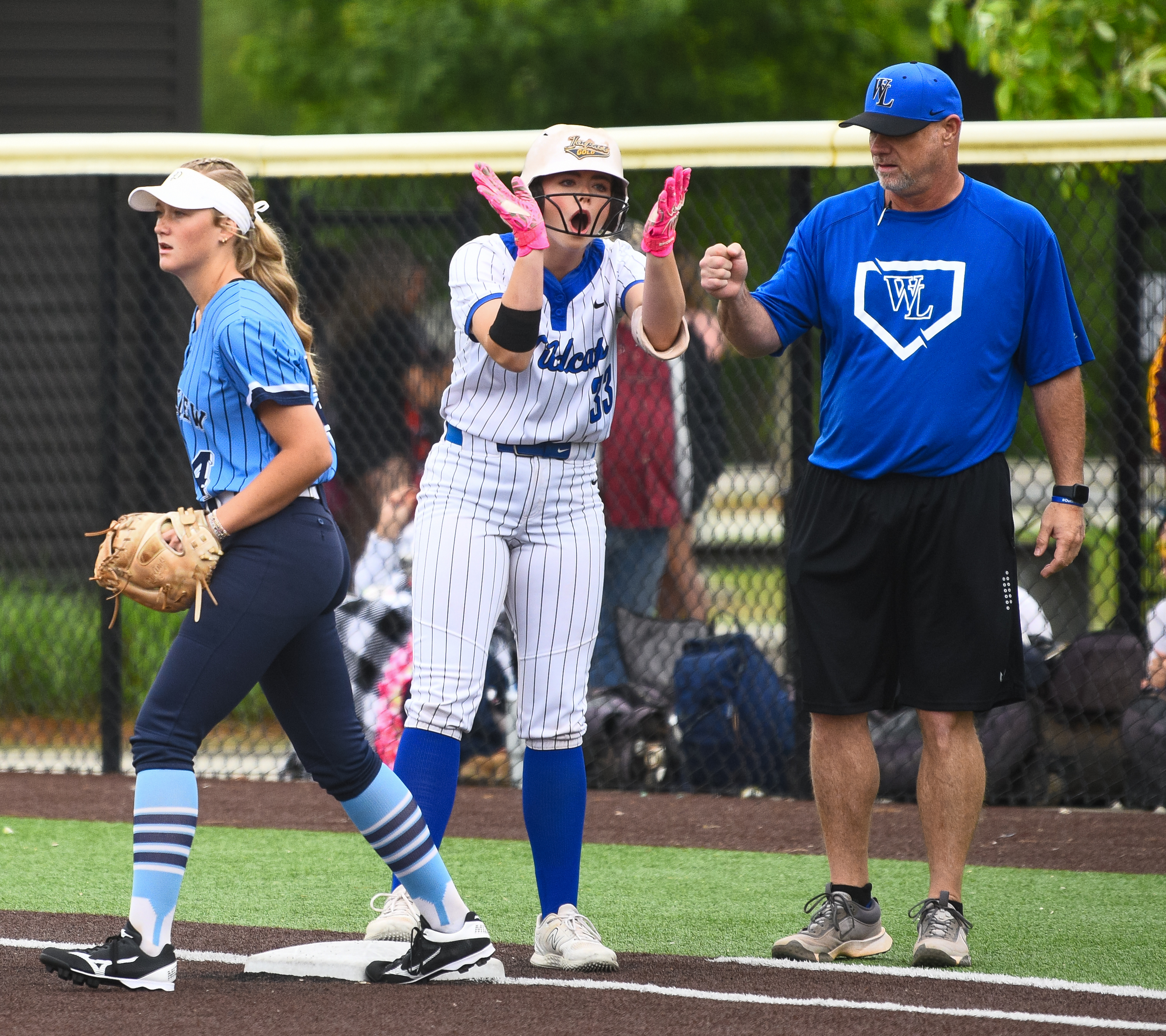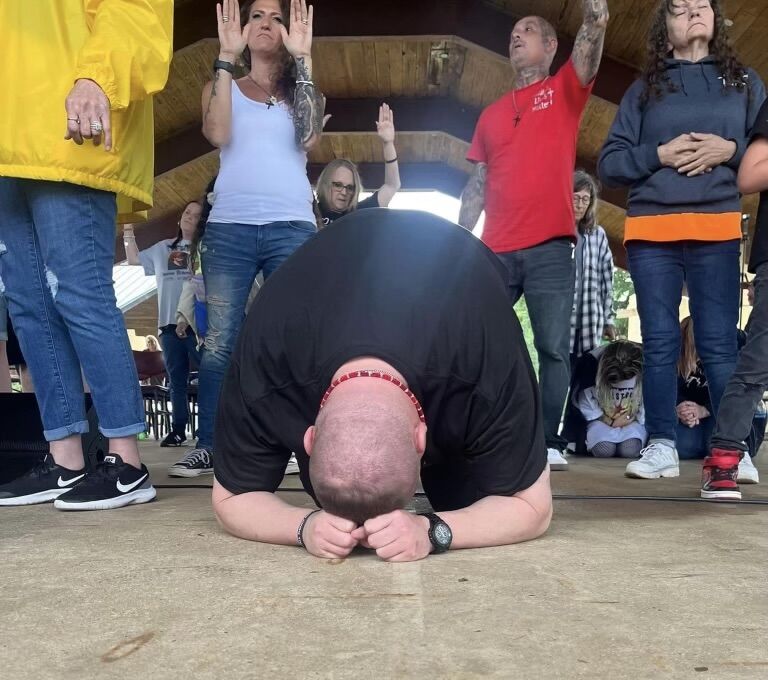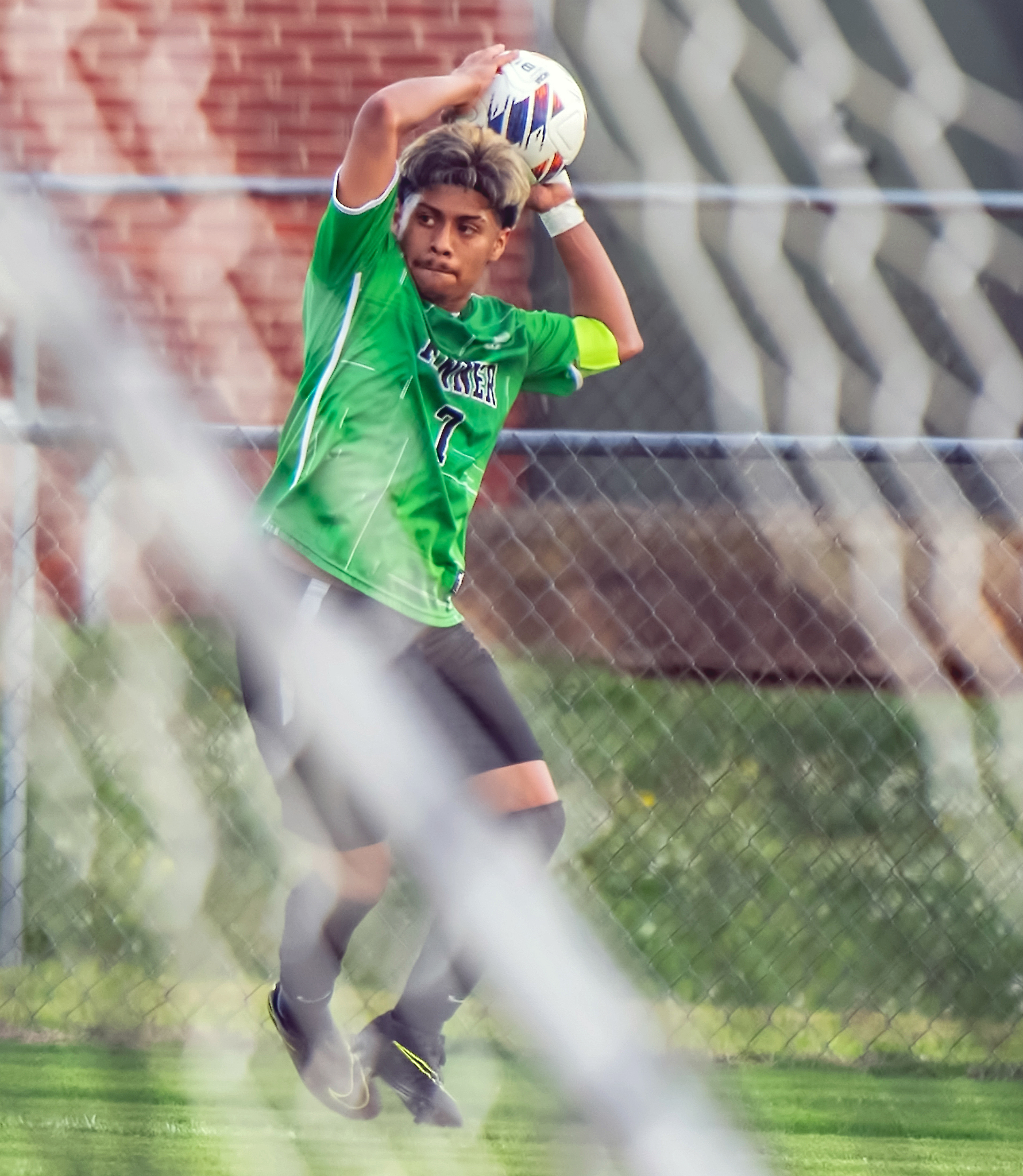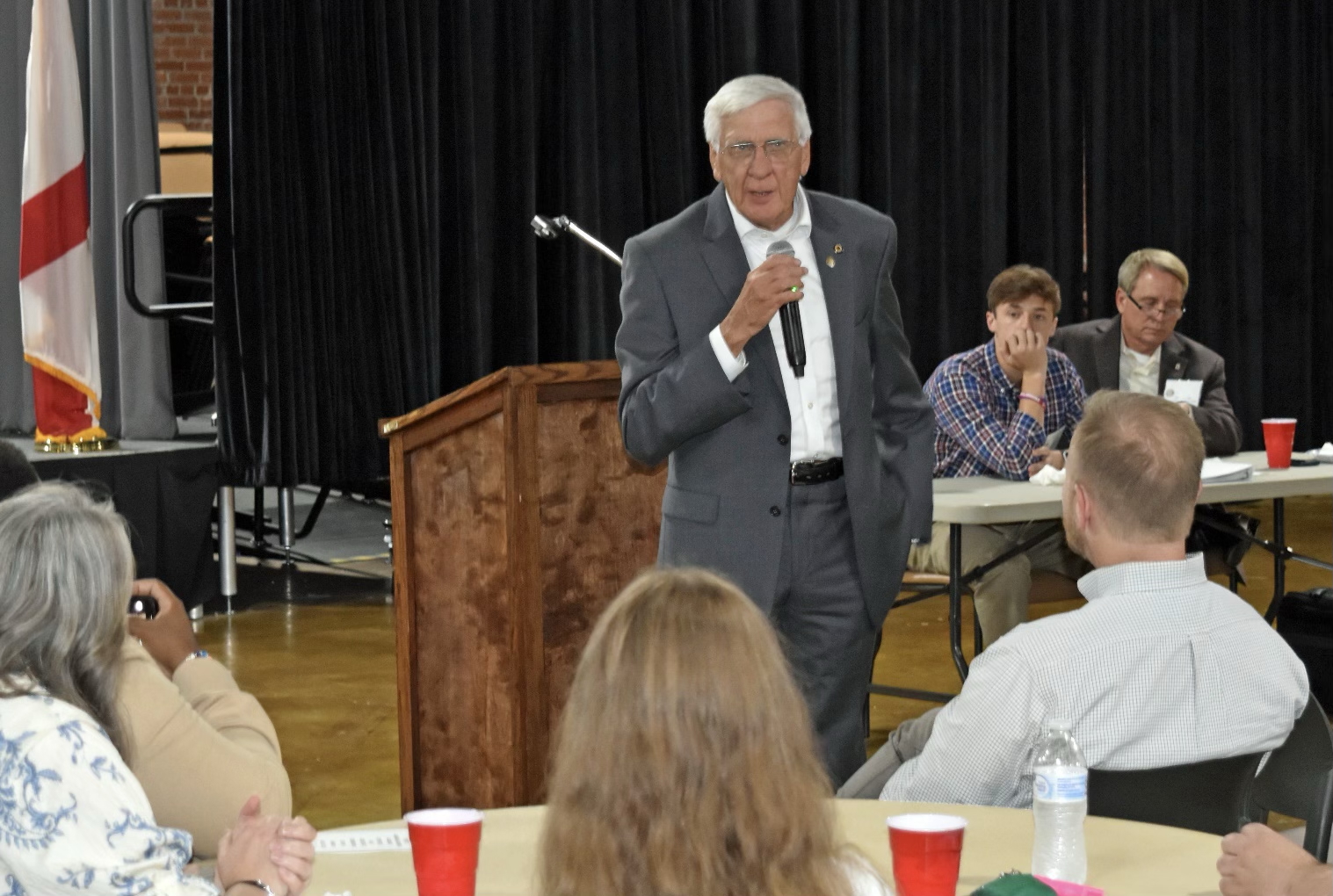Some colleges that had been permissive of pro-Palestinian protests begin taking a tougher stance
Published 2:11 pm Wednesday, May 8, 2024
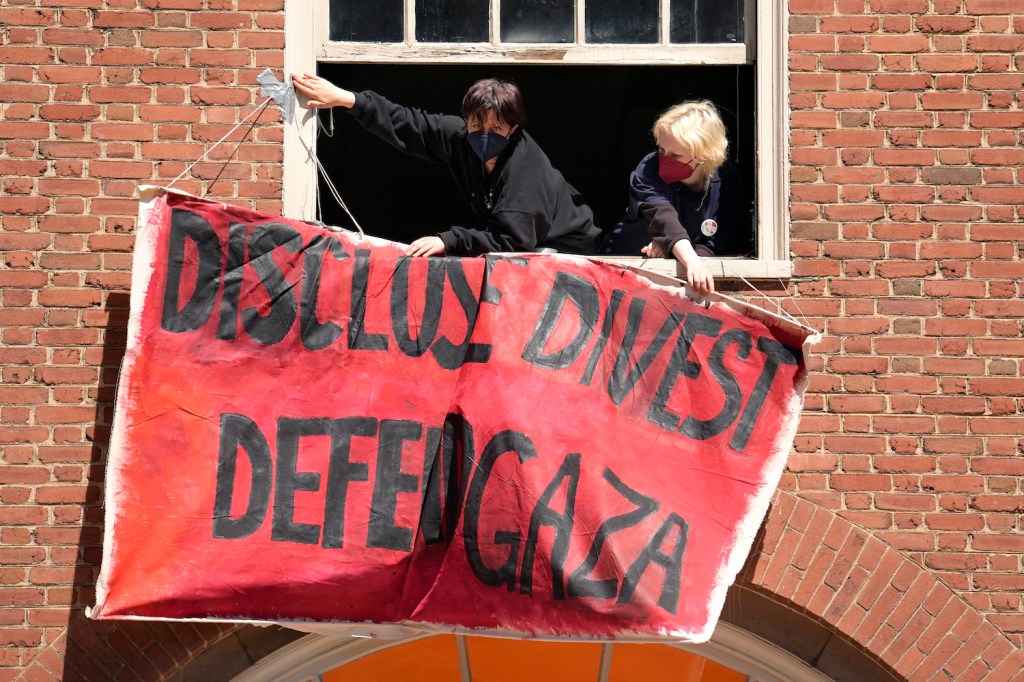
- Activists hang a placard from a window of an upper floor of a building at Rhode Island School of Design, Tuesday, May 7, 2024, in Providence, R.I. RISD students and supporters, who have taken over a portion of the building, are demanding that the school condemn Israel’s war effort in Gaza, and that the school divest from investments that benefit Israel.
CHICAGO (AP) — Police cleared a pro-Palestinian tent encampment at the University of Chicago on Tuesday after administrators who had initially adopted a permissive approach said the protest had crossed a line and caused growing concerns about safety.
University President Paul Alivisatos acknowledged the school’s role as a protector of freedom of speech after officers in riot gear blocked access to the school’s Quad but also took an enough-is-enough stance.
“The university remains a place where dissenting voices have many avenues to express themselves, but we cannot enable an environment where the expression of some dominates and disrupts the healthy functioning of the community for the rest,” Alivisatos wrote in a message to the university community.
Tensions have continued to ratchet up in standoffs with protesters on campuses across the U.S. — and increasingly, in Europe — nearly three weeks into a movement launched by a protest at Columbia University. Some colleges have cracked down immediately on protests against the Israel-Hamas war. Among those that have tolerated the tent encampments, some have begun to lose patience and call in police over concerns about disruptions to campus life, safety and the involvement of nonstudents.
Since April 18, just over 2,600 people have been arrested on the campuses of 50 colleges and universities, according to figures based on AP reporting and statements from universities and law enforcement agencies.
But not all schools are taking that approach.
The president at Wesleyan University, a liberal arts school in Connecticut, has commended the on-campus demonstration — which includes a pro-Palestinian tent encampment — as an act of political expression.
Activists at Wesleyan and some other schools have been left to hold rallies and organize their camps as they see fit. The encampment has grown from about 20 tents a week ago to more than 100.
“The protesters’ cause is important — bringing attention to the killing of innocent people,” university President Michael Roth wrote to the campus community Thursday. “And we continue to make space for them to do so, as long as that space is not disruptive to campus operations.”
At the Rhode Island School of Design, where students started occupying a building Monday, a spokesperson said the school affirms students’ rights to freedom of speech and peaceful assembly and it supports all members of its community. The RISD president and provost were meeting with the demonstrators, the spokesperson said.
Officials at the University of North Carolina, Chapel Hill, told deans and department chairs Monday that some students have been informed by instructors opposing the suspension of student protesters that they will withhold grades.
The school provost’s office says it will support “sanctions for any instructor who is found to have improperly withheld grades.”
The confrontations come as campuses try tactics from appeasement to threats of disciplinary action to resolve the protests against the Israel-Hamas war and clear the way for commencements.
At the University of Chicago, hundreds of protesters had gathered for at least eight days until campus administrators warned them Friday to leave the area or face removal. On Tuesday, law enforcement dismantled the encampment.
Officers later picked up a barricade erected to keep protesters out of the Quad and moved it toward the demonstrators, some of whom chanted, “Up, up with liberation. Down, down with occupation!” Police and protesters pushed back and forth along the barricade as the officers moved to reestablish control.
At MIT, protesters were given a Monday afternoon deadline to voluntarily leave or face suspension. Many left, according to an MIT spokesperson, who said protesters breached fencing after the arrival of demonstrators from outside the university. On Monday night, dozens of protesters remained at the encampment in a calmer atmosphere, listening to speakers and chanting before taking a pizza break.
Sam Ihns, a graduate student at MIT studying mechanical engineering and a member of MIT Jews for a Ceasefire, said the group has been at the encampment for two weeks and is calling for an end to the killing in Gaza.
“Specifically, our encampment is protesting MIT’s direct research ties to the Israeli Ministry of Defense,” he said.
Many protesters want their schools to divest from companies that do business with Israel or otherwise contribute to the war effort. Others simply want to call attention to the deaths in Gaza and for the war to end.
Wesleyan senior Uday Narayanan said students there are prepared to stay through the summer at the encampment if that’s what it takes for their demands to be met.
“Our tuition dollars are still going toward the brutalization of Palestinians,” the 21-year-old physics major said. “So, ultimately, even though our president has said, ‘Oh, I’m not going to call the cops. Oh, I’m not going to beat up students,’ that’s still not enough and that’s not the bare minimum for us.”
And as Wesleyan’s May 26 commencement approaches, some protesters fear they will be forcibly removed from the center of campus, adjacent to the field where the ceremony is to take place.
“The longer we are here the more that their facade of laid back, hands off is falling away,” said Batya Kline, a 22-year-old graduate student. “We know that the university does not want us here and we know that they can change their pace at the drop of a hat without letting us know.”
Frank Straub, senior director of violence prevention at nonprofit advocacy organization Safe and Sound Schools, said what these and past protests have shown is the need for early dialogue among the university, police and protesters to establish ground rules.
Straub said that Wesleyan, for example, needs to have conversations about commencement and where protesters can be, and should make sure a plan is in place to respond, should protesters want to get arrested, so that can be done without violence.
“By their nature, protests are adversarial, but I think we can have controlled adversity,” he added. “And I think the more campus officials are engaged with the protesters and the more police are included in those conversations, that’s critically important.”
Vowing to destroy Hamas, Israel launched an offensive in Gaza that has killed more than 34,500 Palestinians, about two-thirds of them women and children, according to the Health Ministry in the Hamas-ruled territory. Israeli strikes have devastated the enclave and displaced most of its inhabitants.


